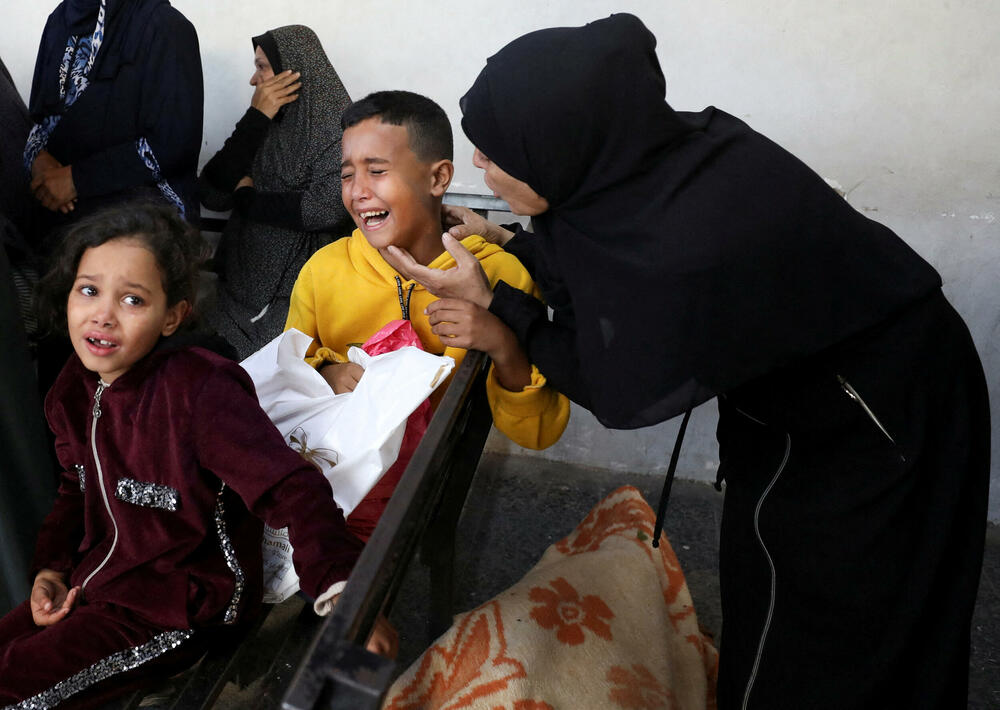Prime Minister Viktor Orban invited Israeli Prime Minister Benjamin Netanyahu to visit Hungary yesterday, but several other European countries said he would be arrested if he set foot on their territory, after a warrant was issued for his arrest.
The International Criminal Court (ICC) on Thursday issued arrest warrants for Netanyahu, his former defense minister Yoav Galant and Hamas leader Ibrahim al-Masri for alleged war crimes and crimes against humanity in the Gaza conflict.
All EU countries are members of the ICC, which means that they should implement its orders.
However, the mixed reactions, as well as the fact that there is no official position from Germany and France on whether to arrest Netanyahu, highlight the serious diplomatic and political challenge posed by the Court’s decision, which drew swift condemnation from Israeli leaders and the White House.
“For us, Europeans, this order represents a real dilemma between international law, which is our right, and our foreign policy, especially for those member states that unconditionally support Israel,” Eurointelligence analysts wrote.
Assuring Netanyahu that he would not be at any risk if he visited Hungary, Orban called the arrest warrants “brazen, cynical and completely unacceptable decisions.” Orban, who is often at odds with his EU partners, has built a close relationship with Netanyahu, according to Reuters.
“Today I will invite the Prime Minister of Israel, Mr. Netanyahu, to visit Hungary and in that invitation I will guarantee him that, if he comes, the decision of the ICC will not have any effect in Hungary, and we will not act according to its content,” said Orban.
The ICC, which does not have its own police force to carry out arrests, has only limited diplomatic means to force states to comply with the tribunal’s decisions if they do not want to.
The Netherlands, Italy, Spain, Finland, Portugal, Slovenia and Ireland are among the EU member states that have announced that they will fulfill their obligations under the ICC.
Netanyahu will be arrested if he sets foot on Irish soil, Irish Prime Minister Simon Harris told RTE radio. “Yes, absolutely. We support the international courts and act according to their orders,” said Haris.
“For us, Europeans, this order represents a dilemma between international law, which is our right, and our foreign policy, especially for those member states that unconditionally support Israel,” Eurointelligence analysts said.
Slovenian Prime Minister Robert Golob said that his country will “fully” comply with the arrest warrants issued by the ICC for Israeli and Hamas officials. Cyprus, which has close ties to Israel, considers the orders generally binding, a government source told Reuters.
Berlin declined to specify what action it would take until Netanyahu decides to travel to Germany, adding that legal issues surrounding the order must be clarified.
Germany “is one of the biggest supporters of the ICC, and such an attitude is also a result of German history,” said the government spokesman.
“At the same time, the consequence of German history is that we have unique relations and a great responsibility towards Israel,” added the spokesman, alluding to the Nazi era.
France also held back, softening its initial reaction, which was that its response would be in line with the ICC statutes. Paris announced yesterday that it had taken note of the decision of the ICC, but that it was not a verdict, but a “formalization of the accusation”.
France is participating in efforts to broker a ceasefire in Lebanon, and officials say putting pressure on Netanyahu at this point could jeopardize those efforts.
Britain, which is a member of the ICC, was also restrained in its response.
In the Netherlands, far-right leader Geert Wilders has announced that he will soon visit his “friend” Netanyahu in Israel, despite the Dutch government saying it will act on an ICC arrest warrant if the Israeli leader visits the country. Wilders is the leader of the largest Dutch party in the ruling coalition, but he is not a member of the cabinet.
The Czech Republic, which, like neighboring Hungary, has traditionally sided with Israel, also seems hesitant. The Czech Foreign Ministry said Prague would respect its international legal obligations, while Prime Minister Petr Fijala called the ICC decision “unpleasant” and said it would undermine the tribunal’s authority.
Israel launched the attack on Gaza after Hamas-led militants breached the border fence on October 7, 2023, killing 1,200 people and taking more than 250 hostages, according to Israeli figures. Since then, Israel’s offensive in Gaza has killed more than 44,000 Palestinians, according to the Gaza Health Ministry.
In Gaza, they do not hold out hope that the ICC’s order will ease the suffering
The residents of Gaza do not have high hopes that the arrest warrant for Israeli leaders will slow down the attack on the Palestinian territory and the suffering of civilians.

Residents of Gaza see the ICC’s decision to seek the arrest of Israeli leaders on suspicion of war crimes as international recognition of the enclave’s plight. However, those waiting in line for bread at a bakery in the southern city of Khan Yunis doubted the decision would have any impact.
“The decision will not be implemented because America protects Israel, and it can veto anything. Israel will not be held responsible,” said Saber Abu Gali, as he waited his turn in the crowd.
Said Abu Yusef, 75, said that even if justice came, it would be decades late: “For more than 76 years, we have been listening to decisions that have not been implemented and that have brought us nothing.”

News
Source: www.vijesti.me


